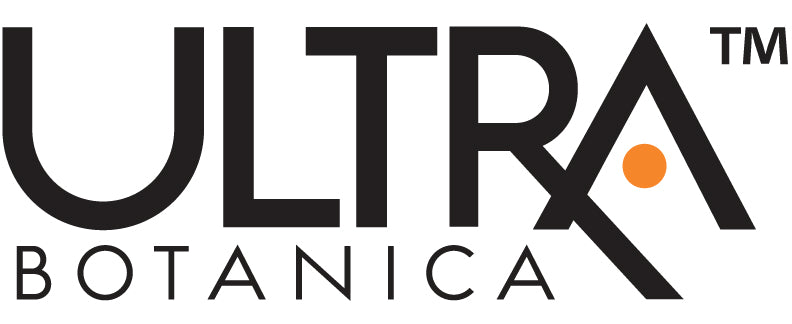Curcumin misconceptions and curcumin myths are everywhere. From social media to health blogs, it is hard to separate fact from fiction.
If you've heard about this golden compound from turmeric, you might be wondering what's true and what isn't. Let's clear up some common myths about curcumin and get to the facts.
Understanding these points and challenging curcumin myths is crucial before you invest in curcumin supplements.
This powerful compound offers many potential health benefits, but only if you know how to use it correctly. We'll explore the science, the myths, and the practical steps for you.
What is Curcumin?
Before we address the curcumin misconceptions and curcumin myths that run rampant, let's clarify what curcumin is. Curcumin is the primary active component found within the turmeric root.
Turmeric itself is a spice derived from the turmeric plant, a member of the ginger family known scientifically as Curcuma longa. For centuries, turmeric has been a cornerstone in traditional systems of medicine, including Ayurveda and traditional Chinese medicine.
While the whole turmeric root has been used, modern science has identified the exact curcumin compounds, called curcuminoids, that are responsible for most of its therapeutic properties. The bright yellow color of turmeric powders comes directly from this compound.
A major issue is that the curcumin content in raw turmeric is quite low, typically around 3% by weight. This distinction is central to many of the curcumin myths masquerading as truth. Getting a therapeutic amount from your diet alone is a significant challenge.
Common Curcumin Misconceptions and Myths
Curcumin has gained a lot of attention—but so have the myths surrounding it. Believing these curcumin myths can lead to choosing the wrong products or using them incorrectly, essentially wasting your time and money.
Let’s clear up the confusion by breaking down the most common misconceptions one by one.

Curcumin Myth #1: Curcumin and Turmeric Are the Same Thing
One of the biggest curcumin myths is the belief that curcumin and turmeric are interchangeable, even though curcumin is merely a compound derived from turmeric.
Thinking a sprinkle of turmeric curry powder on your food provides the same benefit as a concentrated supplement is an erroneous assumption, albeit a common curcumin misconception.
As mentioned, turmeric in its natural form contains only a small percentage of curcumin. To get the doses of curcumin used in many scientific studies, you'd need to consume an impractically large amount of the spice daily.
This is why researchers and health professionals often focus on isolated curcumin extracts for therapeutic purposes. When you see studies highlighting curcumin's health benefits, they almost always refer to concentrated curcumin supplements, not the culinary spice.
These supplements are specifically formulated to deliver a potent, standardized dose. The main content of these supplements is the extracted curcuminoid (curcumin) complex.
Curcumin Myth #2: All Curcumin Supplements Are Created Equal
Believing this curcumin myth can lead to wasted money and disappointing results.The effectiveness of curcumin supplements varies dramatically between brands. The core issue comes down to poor absorption, a problem scientifically known as low bioavailability.
Plain curcumin isn't absorbed well. Our bodies struggle to absorb curcumin into the bloodstream. The body metabolizes it very quickly. This means a standard curcumin powder might pass through your system with little to no effect.
Reputable manufacturers have developed several methods to overcome this curcumin bioavailability challenge.
For example, piperine, an extract from black pepper, is a common strategy that can aid absorption. But it can also upset your stomach and alter how medications are metabolized.
Other methods include combining curcumin with lipids to create phytosomes and using turmeric oil to improve absorption. Protisorb™ is one of the best options. It uses a protein scaffold to help your body absorb curcumin.
Protisorb™ offers a gentler way to boost bioavailability. Clinical studies show Protisorb-based curcumin significantly improves blood plasma levels, making it a reliable choice for those seeking real benefits.
The topic of curcumin bioavailability is one of the most critical factors for a supplement's success.
Standard curcumin has a high rate of metabolism in the liver and intestinal wall. This prevents significant amounts from reaching your blood circulation and being delivered to tissues throughout your body and brain.
When you choose a supplement, it's vital to select one that uses an enhanced formulation. Without one of these absorption technologies, even a high-dose supplement could be ineffective.
Always check the product label for information about its bioavailability or absorption-enhancement method. Look for trusted brands that provide transparency about their formulation.

Curcumin Myth #3: More Curcumin is Always Better
It's a common belief that if a little is good, a lot must be better. However, this is not true for curcumin supplements.
Taking excessively high doses can lead to gastrointestinal (GI) side effects such as nausea, bloating, or diarrhea, as well as medication toxicity due to altered drug metabolism.
The appropriate dosage depends on the specific health goal, the bioavailability of the supplement, and individual factors.
For general wellness and to help test inflammation responses, studies often use doses ranging from 500 to 1,000 mg of a bioavailable extract per day. Different protocols may be recommended for specific conditions like muscle soreness.
It's best to start with the dosage recommended on the product label and consult with a healthcare professional pertaining to your specific needs.
Curcumin Myth #4: Curcumin Works Instantly
Another curcumin misconception is that many people expect to feel the benefits of curcumin immediately, like to taking an over-the-counter pain reliever. This is an unrealistic expectation.
Curcumin works by modulating complex biological pathways, and these effects take time to build up.
Most clinical trials investigating curcumin's benefits last for several weeks to several months. Consistency is vital. You'll likely need to take a well-formulated curcumin supplement daily for 4 to 12 weeks or so before noticing significant improvements.
Patience is required with natural compounds. The goal is to support the body's natural healing processes and balance chronic, low-grade inflammation, which is a gradual process. Don't give up on a quality supplement after just a few days or a week.

Curcumin Myth #5: Curcumin Has No Side Effects
While generally considered safe for most people, curcumin is not completely free of potential side effects or interactions. As mentioned, high doses can cause digestive upset.
More importantly, curcumin can interact with certain medications and/or alter how they're metabolized in the body, especially when using one with piperine.
Curcumin can also have blood-thinning properties. It should be used with caution by individuals taking blood thinning drugs. It may also interact with medications for diabetes and stomach acid.
People with gallbladder disease or bile duct obstructions should also avoid curcumin supplements, as it can stimulate bile production.
Always speak with your doctor before starting curcumin, especially if you have a pre-existing medical condition or are taking prescription medications.
Curcumin Myth #6: Curcumin is a Cure-All
There's a common curcumin misconception -- often shared by other supplement types too -- that I can just take a pill, and it'll resolve all my bad lifestyle practices. That's a very dangerous curcumin myth that could land you in health mess.
Supplements are always designed to supplement or complement a healthy lifestyle, not replace it. You cannot out-supplement an unhealthy lifestyle.
Curcumin offers unique health benefits, sure. But it is not a replacement for sensible healthy lifestyle habits such as:
- Eating a Mediterranean diet of mostly vegetables, fruits, fish, nuts/seeds, eggs, and olive oil, accompanied by a bit of red meat and whole grains. Avoid sugary foods and beverages, pasta, and bread.
- Get 30 minutes or more of exercise every day.
- Get 8 hours of sleep every night, retiring and rising at the same time every day (even on weekends).
- Spend time outdoors (early in the day to midday) to promote good circadian health.
- Learn to address stress with yoga, deep breathing, etc.
The Truth About Curcumin's Benefits
Now that we have cleared up these common curcumin myths and curcumin misconceptions, let's focus on the researched health benefits of curcumin.
A significant body of scientific work supports curcumin's use for various health concerns. Much of this research can be found by searching government databases, such as PubMed. And reading scientific journals and magazines.

Powerful Health Benefits
One of the most celebrated health benefits of curcumin is that it has been shown to block the activity of inflammatory molecules in the body, which helps supports healthy inflammatory responses.
A systematic review published in the journal Phytother Res (Phytotherapy Research) confirmed these potent healthy inflammatory properties.
This makes it a popular option for managing conditions rooted in inflammation, such as osteoarthritis. By calming inflammation, curcumin helps reduce discomfort and improve joint function.
Potent Antioxidant Activity
Curcumin is also a powerful antioxidant. It helps neutralize harmful molecules known as free radicals, which cause oxidative stress and damage to cells, proteins, and DNA. This cellular damage is linked to aging and a host of health issues.
The antioxidant mechanism of curcumin is twofold. It can directly scavenge free radicals, and it can also stimulate the body's own antioxidant enzymes. This dual action provides robust protection against oxidative damage.
Potential Brain Benefits
Emerging research suggests curcumin may benefit brain health.
Some studies indicate it can increase levels of brain-derived neurotrophic factor (BDNF), a growth hormone that functions in the brain. Decreased levels of BDNF are linked to several brain disorders.
By potentially boosting BDNF, curcumin may help improve memory and delay age-related cognitive decline. More research is needed, but the initial findings are promising.
Enhanced bioavailability formulations are particularly important for ensuring curcumin can reach the brain.

Cardiovascular and Metabolic Support
Research also points to curcumin's role in supporting heart health. It can improve the function of the endothelium, which is the lining of the blood vessels. A healthy endothelium is crucial for regulating blood pressure and improving blood circulation.
Additionally, some studies suggest that curcumin can support healthy blood sugar and lipid levels, making it a compound of interest for metabolic health.
It is another example of how balancing systemic inflammation can have widespread benefits throughout the body.
Adjunct Cancer Treatment
Curcumin has been shown in research to be a potentially powerful adjunct cancer treatment that may help modulate side effects of conventional therapies.
It is not recommended that you use curcumin as a stand-alone therapy, regardless of what other integrative health advocates might suggest. Always consult with your healthcare practitioners about what is best for you.
Do Your Own Research
It's always a great idea to do your own research. Start with trusted sources like PubMed, maintained by the National Institutes of Health. It offers access to hundreds of peer-reviewed studies searchable by topic.
If you're feeling overwhelmed, many universities and healthcare institutions offer support services—such as research librarians or health educators—to help you navigate and interpret scientific literature.
For example, search “curcumin” and you’ll find a wide range of clinical and preclinical research. As you explore, be sure to save citation links for any studies you want to reference later or share with others.
Conclusion
Curcumin misconceptions and curcumin myths can cause confusion, lead to unrealistic expectations, and foster buying mistakes. The key takeaway is to approach curcumin supplementation with knowledge.
Look for high-quality, enhanced-bioavailability formulas, be patient, and start with a sensible dose. When used correctly, curcumin supplements can be a valuable part of a healthy lifestyle.
As research continues, we will no doubt learn more about what remarkable curcumin can do for human health. Still, it's important to do your homework and consult with a healthcare professional to see if curcumin is a good fit for you.
Remember that supplements are designed to complement a foundation of good nutrition and healthy habits. 💪

Frequently Asked Questions
1. Is curcumin the same as turmeric?
No, curcumin is not the same as turmeric. Curcumin is the primary active compound found in turmeric root, responsible for most of its health benefits and its bright yellow color. Turmeric contains only about 2–5% curcumin by weight.
2. Can I get enough curcumin just by cooking with turmeric?
Highly unlikely. Cooking with turmeric provides limited health benefits, but the curcumin content is relatively low and poorly absorbed by the body on its own.
To experience the full effects seen in studies, you typically need a highly bioavailable curcumin supplement designed for absorption, such as Protisorb™ curcumin.
3. Does adding black pepper to turmeric make curcumin fully absorbable?
One of the common curcumin myths is that black pepper is the only way to improve absorption. While piperine from black pepper can enhance curcumin uptake, it may also irritate the gut or interfere with certain medications.
Fortunately, newer technologies like Protisorb™ protein-scaffold curcumin offer a safer, more effective alternative for boosting bioavailability without those risks.





Share:
What are Senescent Cells? Can They Help Us Reverse Aging?
Microplastics Dangers: How They Threaten Our Health